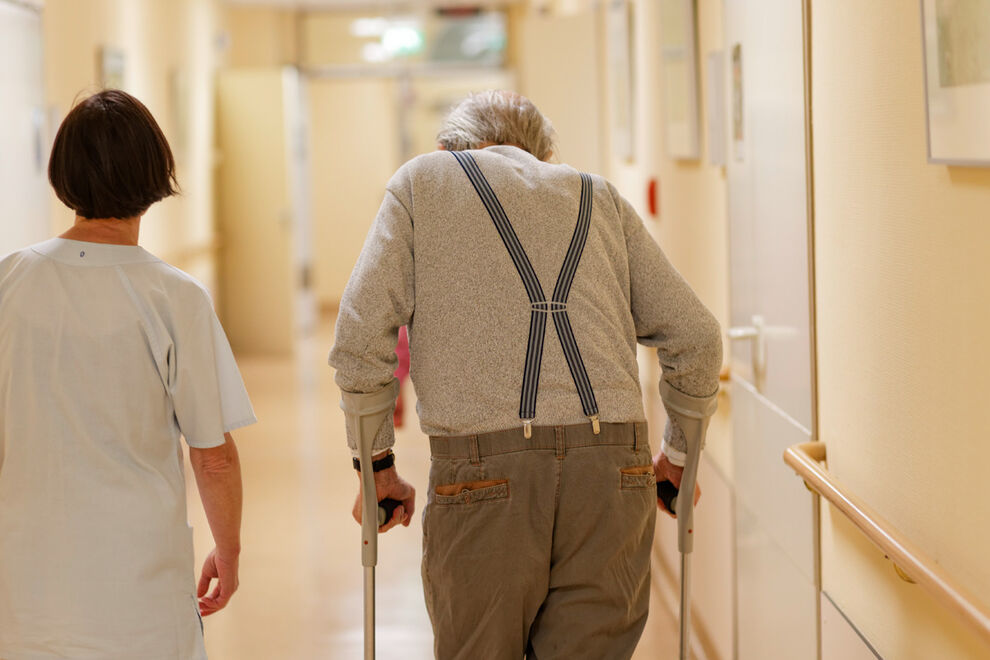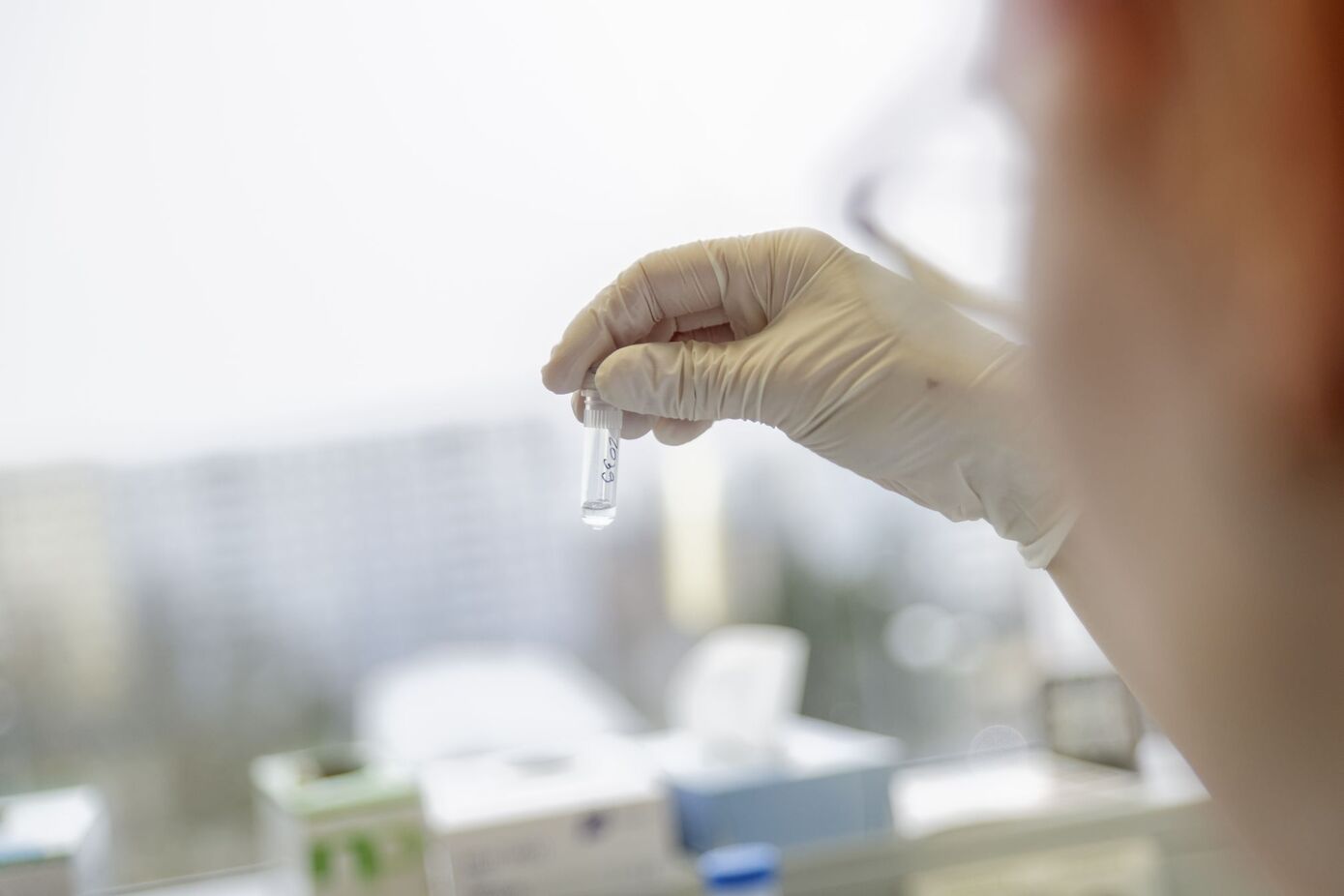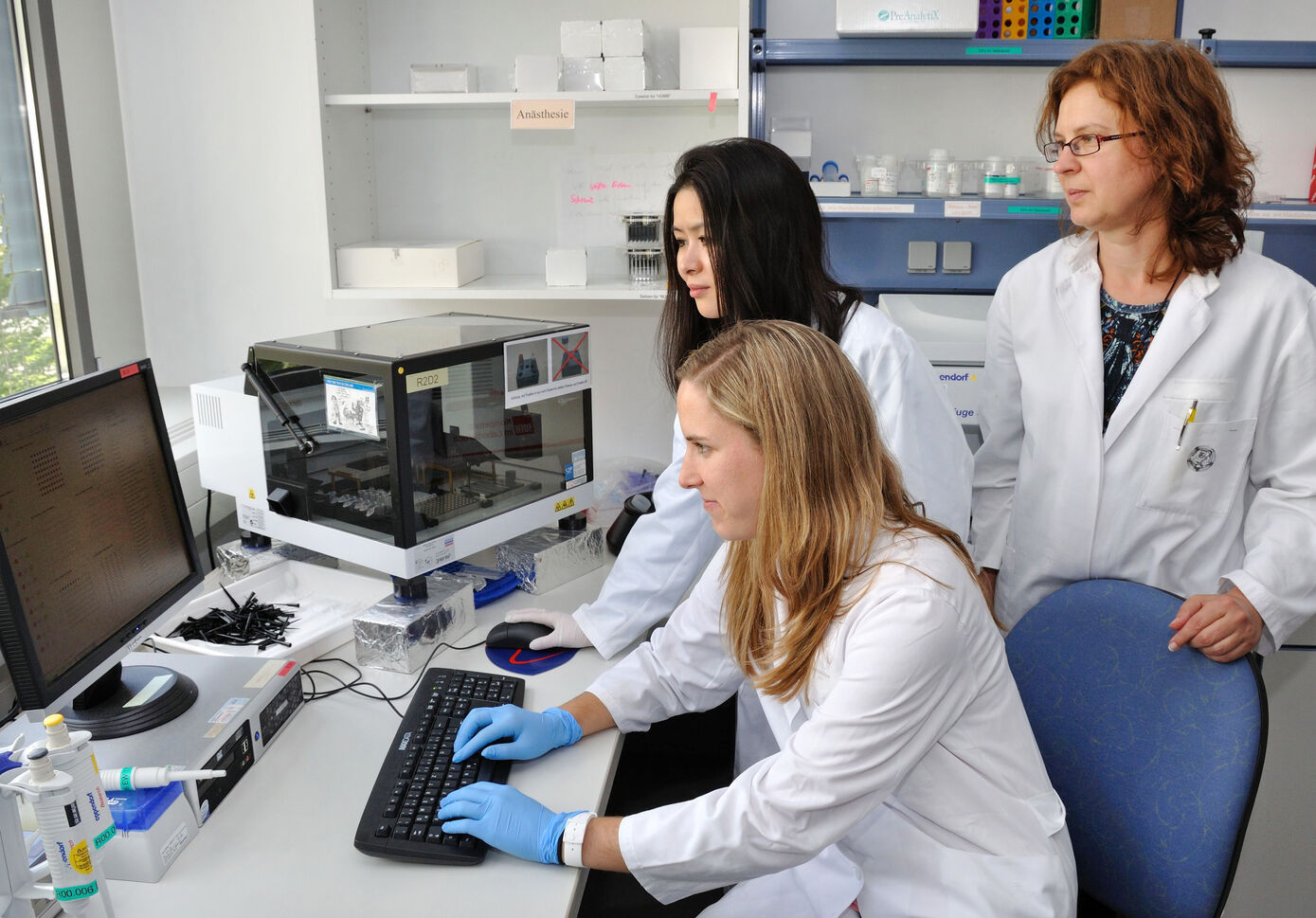The life expectancy of the German population increases by an average of 4 hours each day, while the population is simultaneously aging due to the process of demographic change. In future, there will be many old and very old people who need age adapted treatment - a significant challenge for medicine and clinical practice. Following tasks arise for them:
Multimorbidity: Many elderly people suffer from multiple diseases, a problem that geriatrics has dedicated in a special manner based on function-oriented, holistic approaches.
Biological age: Different people age in different ways and at very different rate; this makes aging itself a disease. There are first clinical trials to influence the biological ageing process through systemic interventions.
Organ-specific aging: Various central aging mechanisms have been identified (including stem cell aging, inflammation, autophagy, oxidative stress, and DNA damage response). Comparative studies show that these processes differ between organs.
Age-related diseases: Aging processes promote or counteract certain diseases. A comprehensive analysis of the JenAge research association revealed that tumours are favoured in middle to old age, but mechanisms that suppress tumours become more activated at a very advanced age. This is accompanied by an increase in neurodegenerative diseases.
Age-dependent therapy: With age, the capacity to regenerate, the clinical expression and the sensitivity for medical interventions change: Therapy, which is appropriate in middle age, can be wrong in old age.




